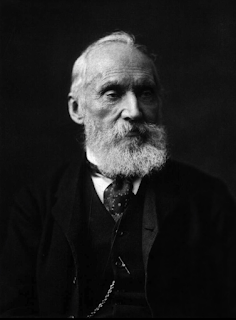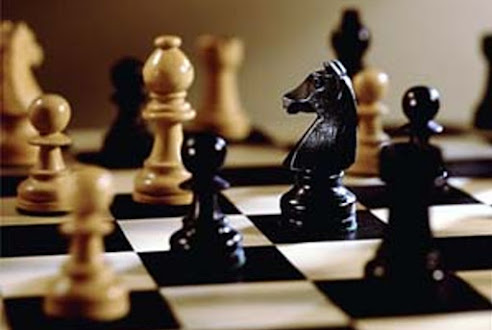Economic sanctions are relatively new: and I can't find anything like that in ancient history. The oldest version known is probably the European blockade enacted by Napoleon against Britain from 1806 to 1814. It damaged more the blocking nations (Europe) than the blocked one (Britain).
The next important blockade was enacted during World War I against the Central Empires. This one was successful, at least in terms of damaging the blocked nations. The victims of starvation caused by the sanctions are probably to be measured in millions. But whether something is a "success" depends on how you define it. You may argue that the sanctions made the survivors angry enough that they sought revenge 20 years later, with World War II.
Another important case of economic sanctions was enacted against Italy in 1935 as a punishment for having invaded Ethiopia. In terms of economic damage, it may have been successful: the Italian economy was badly hit. But we could argue that the wrecking of the Italian Economy was more a result of the war expenses than of the sanction. In any case, it made Italians angry enough that they thought it was a good idea to declare war on Britain in 1940. It wasn't, as they soon discovered.
These examples suggest that sanctions are an effective weapon against weak countries. Actually, they can be a true weapon of mass destruction directed against civilians. Whether they can accomplish anything useful, is another matter. If history tells us something, it is that sanctions tend to achieve results that are exactly the opposite of the intended ones, at least officially.
And not just that. Sanctions often hurt the sanctioners as much as the sanctioned ones. So, it is hard to understand why they are so popular, especially in a world where we tend to glorify "free trade." But, right now, they are like the Colt .45 at the belt of a gunman in a Western Movie: the first thing that appears as soon as a crisis develops. There may be some logic in the idea, though. After all, sanctions are an inexpensive way to give the impression that the government is "doing something." That is what politicians are looking for. Their worst fear is being labeled as "weak," and the sanctions offer them a chance to avoid that.
Will the current sanctions against Russia obtain anything useful? We have to see that but, so far, it seems that the rule that sanctions are a solution that worsens the problem is being confirmed. Not only the Russian public remains in favor of the "special operation" in Ukraine, but the sanctions seem to be hurting Western Europe more than Russia. But we are just at the beginning of the story, and we'll have to see what happens in the long run.
For a historical perspective, below I discuss the case of the sanctions against Italy enacted in 1935.
Sunday, December 8, 2019
The Effect of the Sanctions: Is Italy Cracking Down Under the Strain?
In 1935, Italy invaded Ethiopia, at that time the only remaining free African country. Why exactly that happened is a long story. Let me just say that, in part, it was a revenge for a defeat suffered long before, when an early attempt at invading Ethiopia had failed. In part, it also had to do with reacting to the financial crash of 1929: governments often tend to seek for external enemies to distract people from internal troubles. Then, in part, it was seen as a way to displease the hated British, seen as guilty of not providing for Italy the coal that the Italian economy needed. And, finally, it had to do with some nebulous dreams about rebuilding the Roman Empire. It may sound silly, today, but if you read what people wrote at that time in Italy, the idea of creating a new Roman Empire was taken seriously.
Whatever the reasons, in 1935 the Ethiopian army was overwhelmed by the modern weaponry deployed by Italy: modern guns, planes, tanks, and the like, with the added help of poison gas bombing, a military innovation for that time. The final result was that the King of Italy gained the dubious honor of taking for himself the title of "Emperor of Ethiopia" and that Italy gained "a place in the sun" in Africa, as the propaganda described the results of the campaign.
A victory, yes, but a hollow one. From the beginning, Ethiopia was only a burden to the Italian economy, and the costs of the military occupation were just too much for the already strained Italian finances. The final result was perhaps the shortest-lived empire in history: it lasted just five years, collapsing in 1941 when the Italian forces in Ethiopia were quickly defeated by a coalition of Ethiopian and allied forces.
An interesting side effect of the invasion of Ethiopia was the story of the imposition of economic sanctions on Italy by the League of the Nations. It was a half-hearted effect to stop the invasion, but the war lasted just 8 months and the sanctions were dropped just two months afterward. Their effect was nearly zero in economic and military terms but, in political terms, it was a completely different story, and the consequences reverberated for years. Here are some of these consequences:
1. The Italians were not only appalled at the sanctions, they were positively enraged, appalled, livid. According to the international laws of the time, for a state to attack another was not in itself a crime (unlike the use of chemical weapons, but that came to be known only later). So, most Italians felt that they were punished for having done something -- annexing an African country -- that the other Western Powers had done many times before without anyone complaining. The result was a burst of national pride and a strong wave of popular support for the war. That generated also a wave of personal popularity for the Italian leader, Benito Mussolini, seen as the one who was making Italy great again (some things never change in politics).
2. The sanctions soon were presented by the government's propaganda as an epic and grandiose struggle undertaken by the glorious "proletarian nation" that Italy was against a coalition of the great plutocracies of the world, Britain in particular. And, by defeating this coalition, Italy showed that it was a great power, too, on a par with the others. This idea had terrible consequences when it led the Duce, Benito Mussolini, to think that Italy could match the military capabilities of the major world powers in WW2.
3. The government propaganda in Italy also used the sanctions to magnify the importance of the Ethiopian campaign. If the Northern Plutocrats had reacted so violently against Italy, it was because they feared Italy very much. As a result, Ethiopia became a national priority, to be kept at all costs. At the start of WW2, Italy had more than 100,000 fully equipped troops there. Without the possibility of being resupplied from Italy, these troops had no chance against the British, and they were rapidly wiped out. What might have happened if they had been available in other war theaters? It is unlikely that the final outcome of WW2 would have changed, but, who knows? The battle for Egypt in 1942 could have had a different outcome if Italy had been able to field 100,000 more troops there and, maybe, take the Suez Canal.
This catalog of disasters is so impressive that we might wonder if the sanctions were not just the result of incompetence and idiocy, but of an evil machination. Could it be that the British wanted Italy to engage in an adventure that was sure to lead the country to ruin, a few years later? Of course, it is unlikely that the British had been planning exactly for what happened, but it is not impossible that they understood that the Italian military apparatus would be weakened by the task of keeping Ethiopia and that would make Italy a less dangerous adversary in case of an all-out military conflict. If the British had planned that, they truly deserved the reputation they had at the time (and that they still have) described with the name of the "Perfidious Albion."























